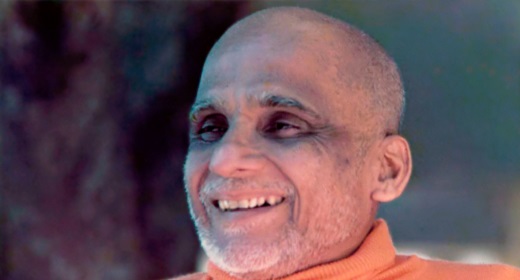by Marianne Williamson: The biggest problem with America’s health care system is that it is not a health care system so much as a sickness care system…
It reflects an outdated perspective on health and healing, in which far too little attention is given to the actual cultivation of health and prevention of disease.
The shift to a genuine health care system would involve attention to environmental, agricultural, chemical and nutritional factors which America’s current corporate-dominated system of governance would presumably resist. Yet if America is to deal with our serious issues involving chronic disease and obesity, we must look deeply at the causes of disease and not simply their treatment.
The Environmental Protection Agency needs to have its power restored as protector of our environment and thus our health. The Clean Air Act and Clean Water Act must be restored in full, and bans on dangerous pesticides once again vigorously established and enforced. Genetically engineered food should be labeled. The Food and Drug Administration needs to have its power restored so that it can once again guard the American people from toxic substances that should not be on our shelves. And our children’s food, particularly school lunches, should be far more filled with healthy ingredients. Until America comes to terms with how much we have acquiesced to the many unhealthy practices that should be considered unlawful — but which are currently allowed in order to increase corporate profits — we will continue to have a less-than-meaningful discussion of how as a society we provide health care.
The issue of health care in America strikes at a key question regarding America’s first principles. Lincoln said we’re to be a government, “of the people, by the people, and for the people,” and it is ours to decide now whether or not we agree.
A government “for the people” is just that. Applying the resources of our government to providing such a fundamental right as access to health care should be a given, as it is in all other advanced democracies. Those who promote the idea that market forces alone should govern our society have promulgated propagandistic memes to dissuade the American people from claiming the right to universal health care. Words like, “socialist,” “too expensive,” and, “Nanny state,” are used to distract us from realizing that with a government “of, by and for the people” – which also happens to be in the richest country in the world – universal health care should be seen as the most natural thing in the world.
Our government exists to work for us – not for health insurance companies or any other corporate entities whose short-term profits may or may not align with our ultimate well-being. And when we discuss who is going to pay for our health coverage, we should also discuss environmental, food, chemical and agricultural policies that contribute to our being sick in the first place. Policies that exist to serve nothing more than profit maximization for industries such as fossil fuel companies, chemical companies, food companies, health insurance companies, big agricultural companies and pharmaceutical companies contribute to the chronic illnesses suffered by millions of Americans.
POLICIES TOWARD HEALTH CARE
Environmental policies such as gutting the Clean Water Act, overturning bans on pesticides, and disempowering the Food and Drug Administration from properly monitoring our food supply, damage our health. Big Agricultural policies promoting and subsidizing cash crops over healthier options – all contribute to the chronic illnesses that plague millions of Americans.
The issue is not just the cost of health care, but the larger cost we are paying – the human cost of being sick so much and so often. Not just a cost to our pocketbooks, but the cost to the quality, and even length, of our lives. The Trump administration has proposed billions of dollars in cuts to the National Institute of Health, Centers for Disease Control, and the Food and Drug Administration. If he is successful , I will restore the funding and add even more to it in order to insure adequate governmental oversight over policies affecting our health.
Policy changes that help prevent and reverse chronic disease and cultivate optimal health will, in addition to helping Americans live more vibrant and healthy lives, save taxpayers trillions of dollars. We need to do more than figure out who is paying for whose disease; we need a president who understands the many policies that contribute to Americans’ illnesses. From environmental policies, to chemical policies, to food policies, to agricultural policies, to animal policies, to pharmaceutical policies, the health of the American people should be of greater concern to the US government than the profits of corporate entities too often not held accountable for the toxicity their products produce.
THE COST OF A HEALTHY AMERICA
Some would argue that we “cannot afford” universal health care, when in fact there are studies showing we would spend less money on a universal medicare-for-all system than we do now. Moreover, there is no way to measure the amount of money that does not enter our economy based on the fact that so many Americans are too stressed and anxious to create and produce at the level that they otherwise could. “What will I do if I get sick?” “What will I do if one of my kids get sick?” “I hate this job, but I stay because of the health care benefits.” Every one of those questions is a limit on a life that would otherwise produce more.
This is why we need universal health care coverage. In the richest country on earth, millions of people should not be living with chronic fear and anxiety based on the difficulty of providing for the basics of life. The fact that such difficulty exists is itself a problem we need to address. For when we do, we face up to the basic inequity of the economic system that dominates our society today.
The corporate dominance of our political decision-making because of the undue influence of corporate money on our political system has not only corrupted our politics; it has corrupted our food supply, our soil, our air, and our water. In electing me president, Americans would elevate a leader who understands this and is willing to address it.
In effect, what we have now is a “disease management” system, not a “health care” system. Half of Americans now have at least one chronic disease, four in ten have multiple. From heart disease, to diabetes, to cancer, to auto-immune diseases, to asthma, many chronic diseases are preventable. Even when they have already manifested, if treated at their root cause, they are far more manageable to deal with and often even reversible. Everything about American life today – including the economic pressure that leaves 40% of Americans living with chronic stress over whether they can make basic costs of health care, rent, transportation, and education – contributes to the higher trend of chronic disease.
I robustly support high-quality universal health coverage for every American. I will do this by making medicare an 0ption on the Obamacare exchanges. Over time, more people will migrate to medicare. I also support federal subsidies to ensure medical coverage for every American, even those in states which have refused medicaid expansion.
Those who wish to keep their private insurance may do so.
In addition, my administration would champion the following policy changes to help change our ill-advised trajectory:
- Require our healthcare system to reimburse medical professionals for a broader array of lifestyle and nutrition support, focused on preventing disease and/or addressing root causes.
- Longer visits with doctors and/or their support staff to better equip patients with skills necessary to make lifestyle changes.
- Provide patients with more robust ongoing support from nutritionists, health coaches, therapists and mental health, exercise specialists, and other peripheral lifestyle treatment providers.
- Integrate world-class technology and systems for better collaboration and cost-savings among healthcare providers.
- Fund programs in all our educational systems, pre-k through college, designed to teach nutrition and lifestyle skills to help cultivate long-term health.
- Restrict the marketing of overly-processed and sugary foods to our children.
- Stop subsidies for agricultural production of unhealthy foods, like high-fructose corn syrup and hydrogenated fats, and incentivize and subsidize farmers, ranchers and food companies for more healthy food production, making it more affordable and available.
- Shape food policies using cutting-edge public health science instead of following the lead of lobbyists for industries whose sole focus is profit.
- Secure and expand the role of the EPA and the FDA to keep toxins out of our environment and food supplies.
- Take a national look at stress levels, and develop ways to lower stress societally. That means adding vacation time, protecting a manageable work week, and taking a close look at how our electronic devices impact our lives. Just as the FDA is supposed to make recommendations about how we eat, the FDA should study, and make constructive recommendations, on how we consume data from our phones and devices.
- We need to develop healthy habits at a community level. Towns and cities can, and should, look collectively at how active their populations are, and institute more ways to increase physical activity through walking paths, bike paths, and community events. The diet of entire cities should be reviewed, as well as ways that communities can contribute to one another’s daily health.
- The Consumer Financial Protection Bureau should investigate how hospitals overcharge patients, and the Justice Department antitrust division should explore ways to remove as much of the profit motive out of medicine as we can.
- The Center for Disease Control should invest more research into preventing disease, rather than treating symptoms and look broadly at vulnerabilities in the system (like avoiding pandemics by encouraging healthy disease avoidance behaviors).
- We also need to find non-pharmacological ways to treat mental health issues, and to take all mental health issues as seriously as physical issues, and reduce the stigma of mental health illnesses, so that more will seek and receive treatment.
- We need to treat drug addiction as a mental health issue, and not as illegal activity. Only by de-criminalizing drugs can we break the back of cartels and drug dealers, while getting addicts into recovery.
This is how a mature debate begins on the issue of health care. As with most issues, the underlying problem is the corporate dominance of American governmental policies. With Marianne Williamson in the White House, Americans would be well aware that on a daily basis, their president is working to realign governmental policies with the health and well-being of the American people.









































